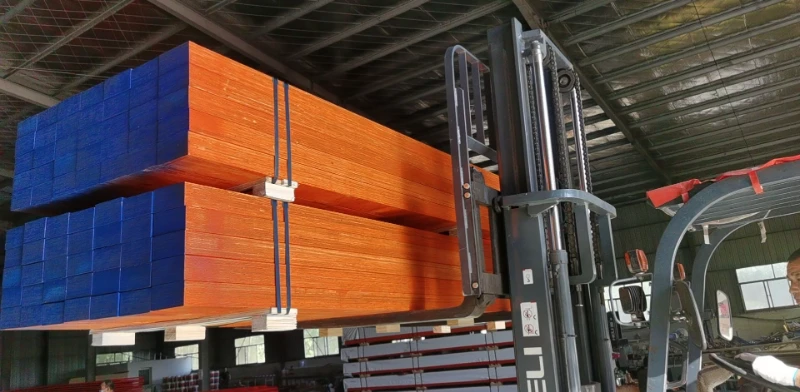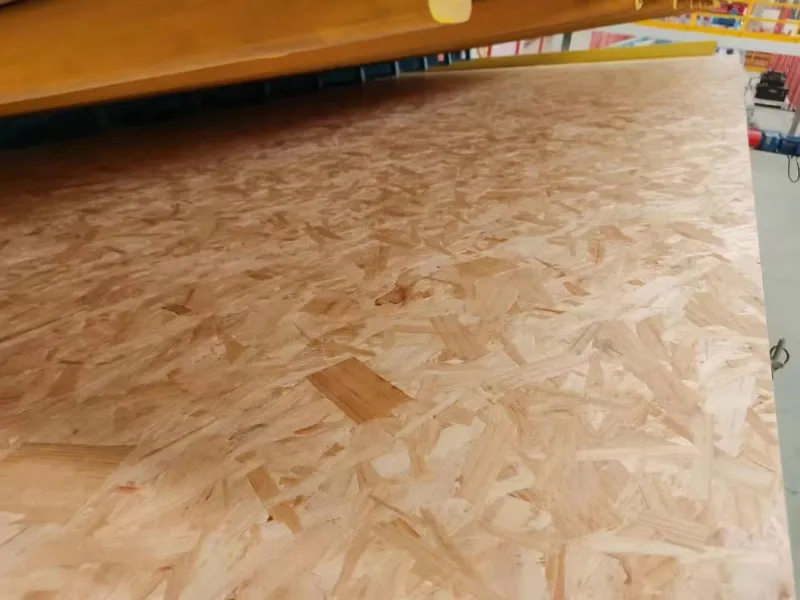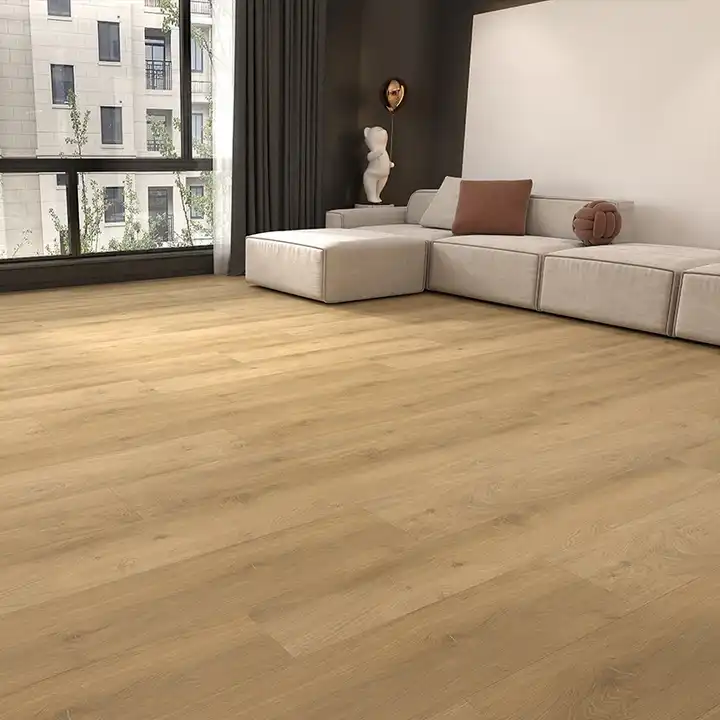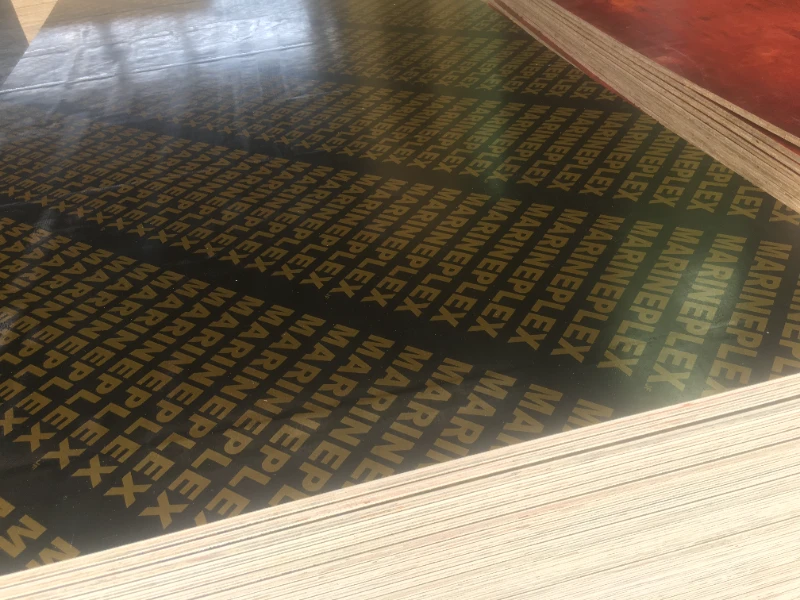In today's construction and furniture industries, the demand for sustainable, high-performance materials is constantly rising. This article delves into the world of poplar LVL door core, an engineered wood product that's rapidly becoming a game-changer. We'll explore why laminated veneer lumber (LVL), particularly when crafted from poplar, offers exceptional strength, stability, and versatility, making it an ideal choice for door cores and a wide range of other applications. Discover how poplar LVL is not just a material but a smart solution for builders, manufacturers, and anyone seeking quality and efficiency.
1. What is LVL and Why is it Becoming So Popular in Construction?
LVL, or Laminated Veneer Lumber, is a type of engineered wood product created to offer superior performance compared to traditional solid wood. Imagine taking thin slices of wood veneer, carefully layering them, and then bonding thin veneer layers together using adhesive. That’s essentially the manufacturing process of LVL. These veneer layers together using adhesive are arranged with the grain running in the same direction, which significantly enhances the strength and dimensional stability of the final product.

The rising popularity of LVL in construction stems from several key advantages. Firstly, LVL efficiently uses wood resources. By utilizing thin veneer, it maximizes the yield from each log, reducing waste and making it a more sustainable option. Secondly, the manufacturing process allows for the creation of large, consistent dimensional lumber, free from the natural defects found in solid wood, such as knots and warp. This consistency is crucial for reliable structural performance. Finally, as an engineered wood product, LVL can be tailored to meet specific performance requirements, making it incredibly versatile for a wide range of applications. From lvl scaffold planks to robust lvl beams, its adaptability is unmatched.
2. What are the Core Advantages of Using LVL in Construction and Furniture Manufacturing?
The advantages of LVL are numerous, making it a preferred material in both construction and furniture manufacturing. Let's delve into some core benefits:
-
Exceptional Strength and Load-Bearing Capacity: Due to its layered structure and consistent grain orientation, LVL boasts high strength. It can handle significant load, making it ideal for structural applications such as door cores, beams, headers, and i-joists. In fact, for its weight, LVL is considerably stronger than solid wood. This strength translates to greater design flexibility and potentially reduced material usage.
-
Superior Dimensional Stability: Solid wood is notorious for its tendency to warp, twist, and shrink, especially with changes in moisture content. LVL, on the other hand, exhibits excellent dimensional stability. The manufacturing process minimizes internal stresses, resulting in a product that is far less likely to warp or change dimension over time. This stability is critical for maintaining the integrity of structures and the quality of furniture.
-
Consistent Quality and Predictability: Unlike solid wood, which varies in quality depending on the tree and cut, LVL is manufactured to consistent standards. This means builders and manufacturers can trust in the predictable performance of LVL across different batches. This reliability simplifies design and ensures structural integrity.
-
Versatility in Applications: LVL's combination of strength, stability, and dimensional consistency makes it incredibly versatile. It's used in everything from structural framing and lvl beams to door cores, window frames, and furniture components. Its adaptability makes it a cost-effective choice, as one material can serve multiple purposes.
-
Efficient Use of Wood Resources: As highlighted earlier, LVL manufacturing is an efficient way to utilize wood resources. It allows manufacturers to create high-performance products from smaller trees and veneer, reducing reliance on old-growth forests and promoting sustainability in the wood product industry.

3. Why Choose Poplar for LVL Door Cores?
While LVL can be made from various wood species, poplar offers unique advantages specifically for door core applications. Poplar is a fast-growing and readily available timber species, making it a sustainable and cost-effective choice. Here’s why poplar LVL is particularly well-suited for door cores:
-
Lightweight: Poplar wood is naturally lighter than many other hardwoods. This lower density is a significant benefit for door cores. Lighter doors are easier to handle during installation and operation, reducing strain on hinges and hardware over time. For interior doors especially, excessive weight is unnecessary and can be a disadvantage.
-
Excellent Machinability: Poplar is known for its ease of machining. It cuts cleanly and holds screws and fasteners well. This is crucial in the manufacturing of door cores, where precise shaping, sizing, and hardware integration are required. The good machinability of poplar LVL translates to faster manufacturing times and reduced production costs.
-
Good Stability: While perhaps not as dense as some hardwoods, poplar still provides good stability, especially when processed into LVL. The veneer layering process in LVL manufacturing enhances poplar's natural dimensional stability, making it resistant to warping and twisting – essential for maintaining the flat, true surface required for door cores.
-
Cost-Effectiveness: Poplar is generally more affordable than many other timber species used in LVL manufacturing. This cost advantage makes poplar LVL a highly competitive option for door cores, allowing manufacturers to produce quality doors at a reasonable lvl lumber prices. In a price-sensitive market, this is a significant benefit.
-
Sustainable Choice: Poplar's rapid growth rate makes it a renewable wood resource. Choosing poplar LVL supports sustainable forestry practices and reduces pressure on slower-growing, more ecologically sensitive tree species. For businesses and consumers increasingly concerned about environmental impact, poplar LVL is a responsible material choice.
4. What Makes LVL Door Cores a Versatile Alternative to Solid Wood?
LVL door cores are rapidly gaining traction as a versatile alternative to solid wood, and for good reason. Their versatility stems from a combination of performance characteristics and manufacturing adaptability that solid wood simply can't match. Here's a look at what makes LVL door cores so versatile:
-
Consistent Dimensions and Shapes: LVL manufacturing allows for precise control over dimensions. Unlike solid wood, which is limited by the natural size and shape of the tree, LVL can be produced in a wide range of thicknesses, widths, and lengths. This dimensional consistency simplifies door manufacturing and ensures uniformity across large production runs. Manufacturers can order poplar lvl for door core in specific dimensions, minimizing waste and processing time.
-
Design Flexibility: The engineered nature of LVL provides designers with greater flexibility. LVL panels can serve as the core material for various door styles and constructions, from simple flush doors to more intricate designs. Its strength and workability allow for creative shaping and detailing that might be challenging or impossible with solid wood.
-
Suitability for Different Door Types: Poplar LVL door cores are suitable for both interior and exterior doors. For interior doors, their lightweight nature and dimensional stability are ideal. For exterior doors, when properly treated and faced with appropriate veneers or panels, LVL cores provide a stable and durable base.
-
Compatibility with Various Facing Materials: LVL door cores are designed to be faced with other materials. They provide a strong, stable core that can be overlaid with wood veneer, plywood, MDF, or even metal or composite panels. This allows for a wide range of aesthetic finishes and performance characteristics, tailored to specific application requirements. For example, a film faced plywood facing can provide enhanced durability and weather resistance for exterior doors.
-
Adaptability in Manufacturing Processes: LVL is compatible with standard woodworking tools and machinery. This makes it easy to integrate LVL door cores into existing door manufacturing lines. The material can be easily cut, shaped, and joined using conventional techniques, simplifying the transition from solid wood to engineered wood.

5. How Strong is LVL Compared to Solid Wood for Door Cores and Other Applications?
When it comes to strength, LVL often surpasses solid wood, particularly in key structural properties. This enhanced strength is a major reason for LVL's growing popularity in construction and its suitability for demanding applications such as door cores. Let's compare the strength characteristics:
-
Higher Bending Strength: Due to the uniform grain orientation and the bonding process, LVL exhibits significantly higher bending strength than solid wood of comparable size. This means LVL beams and headers can span greater distances and support heavier loads without sagging or failing. For door cores, this translates to increased resistance to bending and impact.
-
Increased Tensile Strength: LVL also demonstrates improved tensile strength, which is the ability to resist being pulled apart. This is crucial in structural applications where members are subjected to tension forces. In door cores, tensile strength contributes to overall door integrity and resistance to racking or distortion.
-
Greater Shear Strength: Shear strength, the ability to resist forces that cause layers to slide past each other, is also enhanced in LVL. This is important in connections and joints. For door cores, shear strength ensures the core remains intact and connected to the door facings under stress.
-
Consistent Strength Properties: As mentioned before, LVL's manufacturing process results in a much more consistent product than solid wood. Natural defects in solid wood like knots and irregular grain can significantly weaken its strength. LVL, being free of these defects, offers predictable and reliable strength properties throughout every piece. This consistency is vital for structural reliability and design calculations.
-
Strength-to-Weight Ratio: LVL, especially poplar LVL, often has a better strength-to-weight ratio than many solid wood species. This means you can achieve greater strength with less material weight, which is beneficial in terms of handling, transportation, and overall structural efficiency. For door cores, a high strength-to-weight ratio means a strong yet manageable door.
While solid wood still has its place, especially in aesthetic applications, LVL's superior and more consistent strength makes it the preferred choice for structural elements and high-performance components like door cores. When engineering for load and durability, LVL provides a significant advantage.
6. What are the Key Applications of Poplar LVL Beyond Door Cores?
The versatility of poplar LVL extends far beyond just door cores. Its unique combination of strength, stability, and workability makes it a valuable material in a wide range of applications. Here are some key uses for poplar LVL beyond door cores:
-
Structural Framing: LVL beams and headers are widely used in residential and commercial construction as replacements for solid wood framing members. They offer superior load-bearing capacity and longer spans, reducing the need for intermediate supports. Structural LVL is crucial for roof and floor systems.
-
I-Joists: LVL is a key component in I-joists, another type of engineered wood structural member. I-joists, with LVL flanges and OSB or plywood webs, are incredibly efficient for floor and roof joists, offering high strength and stiffness with minimal weight.
-
Window and Door Headers: LVL headers provide strong and stable support over window and door openings, resisting warping and sagging better than solid wood. Their dimensional stability ensures windows and doors operate smoothly over time.
-
Rim Boards: LVL rim boards are used to provide lateral support and connection points in floor framing systems. They enhance the overall stiffness and stability of the floor structure.
-
Scaffolding Planks: LVL scaffolding plank offers a safer and more reliable alternative to traditional solid wood planks. LVL planks are less prone to splitting and warping, providing a more stable and durable work platform. Laminated scaffold planks are becoming increasingly commonly used on construction sites.
-
Furniture Components: Beyond door cores, poplar LVL can be used for various furniture components, especially where strength and dimensional stability are important. It can be used for table legs, chair frames, and other structural parts of furniture.
-
Formwork: While perhaps not as common as film faced plywood, LVL can also be used in concrete formwork, especially for components requiring high strength and stiffness. Its dimensional stability ensures accurate concrete shapes.
The breadth of these applications underscores the versatility of poplar LVL. From structural framing to furniture, its engineered properties make it a smart choice for builders, manufacturers, and engineers alike.
7. What Manufacturing Process Ensures the Quality and Stability of LVL Door Cores?
The quality and stability of LVL door cores are directly linked to a meticulous manufacturing process. At JSY LVL, we prioritize quality control at every stage to ensure our LVL products, including poplar LVL for door core, meet the highest standards. Here’s an overview of the key steps:
-
Veneer Peeling and Drying: The process begins with carefully selecting poplar logs. These logs are then peeled into thin veneer sheets of a consistent thickness. The veneer is then dried in kilns to a precise moisture content. Controlling moisture content is crucial to prevent warping and ensure proper adhesive bonding.
-
Veneer Grading and Selection: Dried veneer sheets are graded for quality. Knots and other defects are minimized or removed. Veneers are selected to meet specific quality requirements for different LVL grades and applications.
-
Adhesive Application: A high-quality adhesive is applied to the veneer sheets. The type of adhesive used is critical for the strength, durability, and environmental performance of the LVL. We use adhesives that provide a strong and lasting bond while meeting relevant environmental standards.
-
Lay-up and Pressing: The adhesive-coated veneer sheets are carefully layered in a press. The grain direction of each veneer layer is aligned to maximize strength in the desired direction. The stack of veneer is then subjected to intense pressure and heat in a large press. This process compresses the veneer layers together, activates the adhesive, and creates a solid, unified LVL panel.
-
Curing and Cooling: After pressing, the LVL panels undergo a curing process to fully set the adhesive bond. They are then cooled to stabilize the material and relieve internal stresses.
-
Sizing and Finishing: The LVL panels are then cut to specific dimensions based on customer orders or standard sizes. For door core applications, panels are often cut to standard door widths and lengths. Surfaces may be sanded or finished as required.
-
Quality Control and Inspection: Throughout the entire manufacturing process, rigorous quality control checks are performed. This includes monitoring moisture content, adhesive spread, pressing pressure and temperature, and dimensional accuracy. Finished LVL products are inspected to ensure they meet all relevant quality standards and specifications.
This detailed manufacturing process, combined with our commitment to quality control, ensures that JSY LVL door cores are stable and resistant to warping, splitting, and other common wood defects.
8. How Does the Dimensional Stability of LVL Benefit Door Core Manufacturing?
The exceptional dimensional stability of LVL is a game-changer in door core manufacturing. It addresses many of the challenges associated with using solid wood and offers significant benefits to door manufacturers and end-users alike. Here’s how dimensional stability enhances door core manufacturing:
-
Reduced Warp and Twist: Solid wood door cores are highly susceptible to warping and twisting due to changes in humidity and moisture content. This can lead to doors that are difficult to close, gaps around the edges, and aesthetic issues. LVL door cores, with their superior dimensional stability, are far less likely to warp or twist, resulting in doors that remain true and functional for longer.
-
Consistent Door Dimensions: Dimensional stability ensures that LVL door cores maintain their dimensions over time. This is crucial for consistent door sizes and reliable fit within door frames. Manufacturers can maintain precise tolerances and produce doors that are consistently square and plumb.
-
Minimized Shrinkage and Swelling: Solid wood expands and contracts significantly with changes in moisture content. This movement can cause problems in doors, leading to cracks in finishes, loose joints, and operational issues. LVL door cores exhibit minimal shrinkage and swelling, maintaining the integrity of the door assembly and finish.
-
Improved Door Performance: Doors made with dimensionally stable LVL cores perform better overall. They close smoothly, seal properly against drafts and noise, and require less maintenance over their lifespan. This improved performance translates to greater customer satisfaction and reduced warranty claims for door manufacturers.
-
Simplified Manufacturing Processes: Because LVL door cores are less prone to movement, manufacturing processes can be simplified. Manufacturers can work with tighter tolerances and reduce the need for complex joinery or expansion gaps. This can lead to faster production times and lower manufacturing costs.
-
Enhanced Durability: By resisting warping and dimensional changes, LVL door cores contribute to the overall durability of doors. Doors remain structurally sound and aesthetically pleasing for longer, extending their service life and reducing replacement costs.
The dimensional stability of LVL is not just a technical advantage; it directly translates to tangible benefits for door manufacturers in terms of reduced waste, lower production costs, improved product quality, and enhanced customer satisfaction. It’s a key reason why LVL door cores are becoming the preferred choice in the industry.
9. Why Should Construction Companies and Door Manufacturers Consider LVL Door Cores from JSY LVL?
JSY LVL is a leading factory specializing in engineered wood products, including high-quality poplar LVL door cores. We are committed to providing our B2B partners – construction companies, building material suppliers, door manufacturers, and furniture manufacturers – with superior products and reliable service. Here’s why you should consider LVL door cores from JSY LVL:
-
Expertise in Engineered Wood Products: With multiple production lines and years of experience, JSY LVL has deep expertise in the manufacturing of engineered wood products. We understand the specific requirements of door core applications and produce LVL that is precisely tailored to these needs.
-
High-Quality Poplar LVL: We use carefully selected poplar timber and advanced manufacturing processes to produce LVL door cores that meet the highest standards for strength, stability, and dimensional accuracy. Our LVL is designed to perform reliably and consistently.
-
Customizable Dimensions and Specifications: We offer LVL door cores in a range of standard thicknesses, widths, and lengths. We can also accommodate custom orders to meet your specific dimensions and performance requirements. Whether you need thin panels or thicker cores, we can deliver.
-
Competitive Pricing: As a direct factory source in China, JSY LVL offers competitive lvl beam cost and lvl lumber prices. We provide cost-effective solutions without compromising on quality. We understand the importance of competitive pricing in today’s market.
-
Reliable Supply and Logistics: We have established efficient production and logistics systems to ensure reliable supply and timely delivery to our customers in the USA, North America, Europe, and Australia. We understand the importance of meeting project schedules.
-
Commitment to Sustainability: Poplar is a renewable wood resource, and we are committed to sustainable forestry practices. Choosing poplar LVL door cores from JSY LVL supports environmentally responsible building and manufacturing.
-
B2B Focus and Support: We are a B2B supplier focused on building long-term partnerships with our customers. We provide dedicated sales and technical support to help you select the right LVL products for your applications and ensure your success.
By choosing JSY LVL as your supplier of poplar LVL door cores, you gain access to high-quality products, competitive pricing, reliable supply, and expert support. We are your trusted partner in engineered wood products.
10. Want to Learn More About LVL Door Cores? Contact Us Today!
Ready to explore how poplar LVL door cores from JSY LVL can benefit your construction projects or door manufacturing operations? We’re here to help!

Contact us today to:
- Request a quote for poplar LVL door cores or other LVL products.
- Discuss your specific project requirements and application needs.
- Learn more about our manufacturing processes and quality control.
- Inquire about LVL lumber prices and lvl beam cost.
- Request samples or product specifications.
Our experienced sales team is ready to answer your questions and provide you with the information you need to make informed decisions about LVL door cores. We are committed to providing excellent customer service and building lasting relationships with our B2B partners.
Don't hesitate to reach out – we look forward to hearing from you and helping you discover the advantages of poplar LVL door cores!
In Summary: Key Takeaways About Poplar LVL Door Cores
- Poplar LVL door core is an engineered wood product offering superior strength, stability, and versatility compared to solid wood.
- LVL is manufactured by bonding thin veneer layers together using adhesive, resulting in consistent dimensional lumber free of natural defects.
- Poplar wood is a lightweight, cost-effective, and sustainable choice for LVL door cores, offering excellent machinability and good stability.
- LVL door cores are a versatile alternative to solid wood, suitable for various door types and compatible with different facing materials like film faced plywood.
- LVL exhibits higher bending, tensile, and shear strength than solid wood, making it ideal for structural applications.
- Beyond door cores, poplar LVL is used in structural framing, I-joists, lvl beams, scaffolding planks, and furniture.
- JSY LVL employs a meticulous manufacturing process to ensure the quality and dimensional stability of our LVL door cores.
- The dimensional stability of LVL reduces warping, minimizes shrinkage, and improves overall door performance and durability.
- JSY LVL is a leading factory providing high-quality poplar LVL door cores at competitive prices, with reliable supply and B2B support.
Post time: Feb-12-2025




